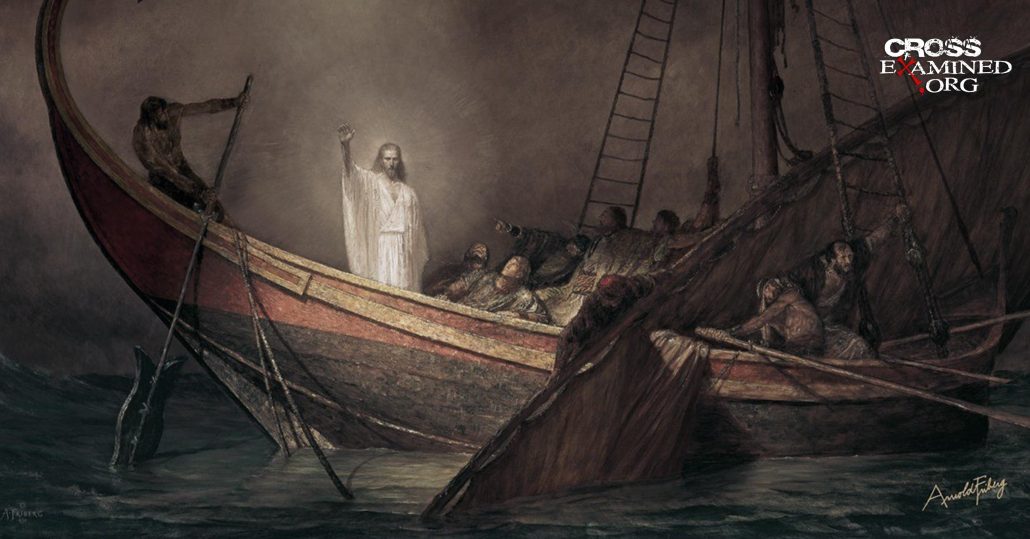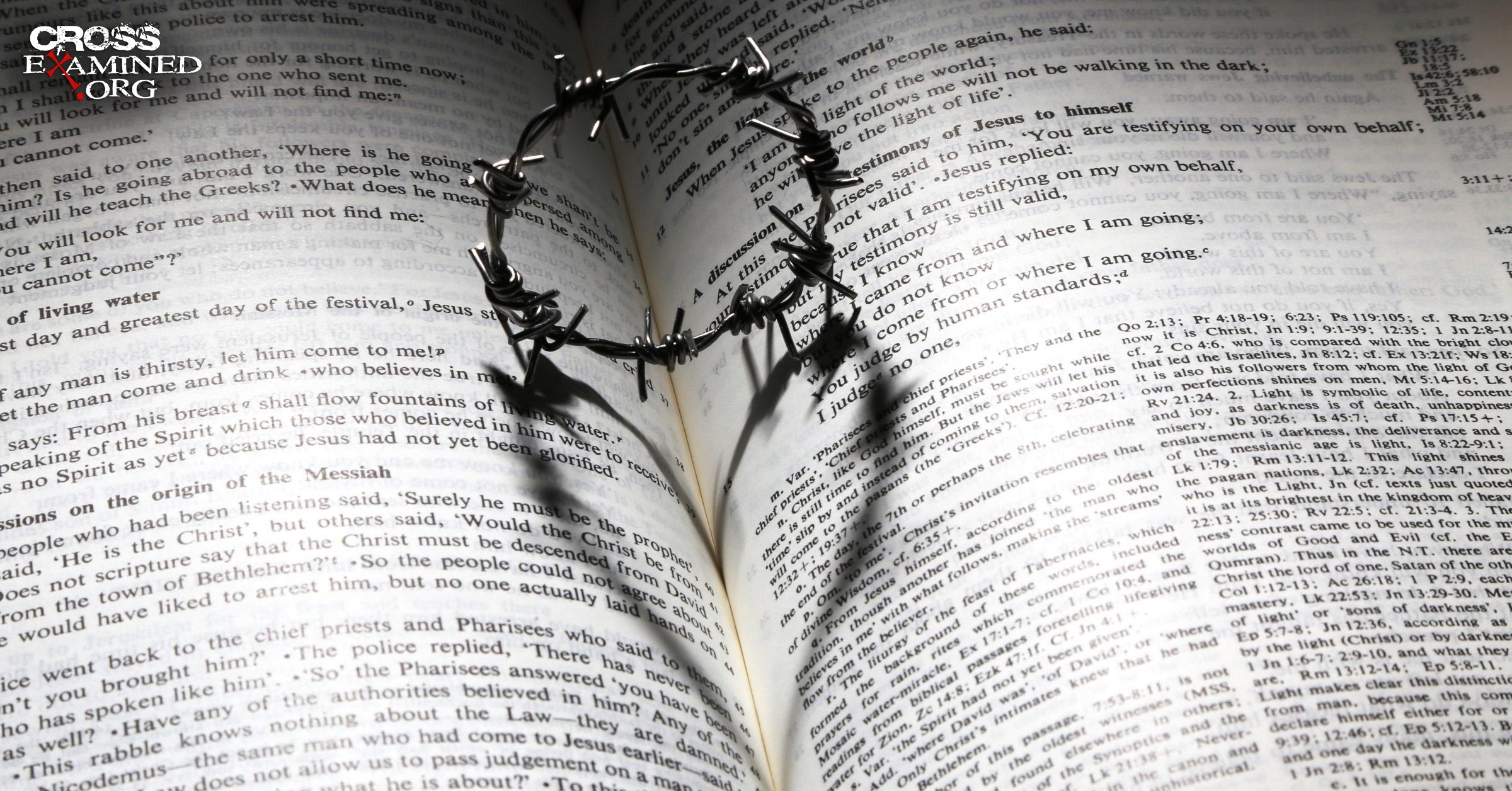The month of March has been designated as Women’s History Month. It has often been erroneously suggested that the Bible is misogynistic in its portrayal of women. While this article cannot combat every claim of misogyny weighed against the Scriptures, it is ironic that it was the early testimony of women, those that skeptics claim the Scripture dismisses, that strongly suggests the high historical probability of the resurrection event. This article will look at four ways that the early testimony of women serves as a defense for the historicity of the resurrection of Jesus. Before doing so, let us first look at what the Gospels state concerning the women’s testimony that Jesus had risen.
After the Sabbath, as the first day of the week was dawning, Mary Magdalene and the other Mary went to view the tomb. 2 There was a violent earthquake, because an angel of the Lord descended from heaven and approached the tomb. He rolled back the stone and was sitting on it. 3 His appearance was like lightning, and his clothing was as white as snow. 4 The guards were so shaken by fear of him that they became like dead men. 5 The angel told the women, “Don’t be afraid, because I know you are looking for Jesus who was crucified. 6 He is not here. For he has risen, just as he said. Come and see the place where he lay. 7 Then go quickly and tell his disciples, ‘He has risen from the dead and indeed he is going ahead of you to Galilee; you will see him there.’ Listen, I have told you.” 8 So, departing quickly from the tomb with fear and great joy, they ran to tell his disciples the news. 9 Just then Jesus met them and said, “Greetings!” They came up, took hold of his feet, and worshiped him. 10 Then Jesus told them, “Do not be afraid. Go and tell my brothers to leave for Galilee, and they will see me there” (Matt. 28:1-10).
When the Sabbath was over, Mary Magdalene, Mary the mother of James, and Salome bought spices, so that they could go and anoint him. 2 Very early in the morning, on the first day of the week, they went to the tomb at sunrise. 3 They were saying to one another, “Who will roll away the stone from the entrance to the tomb for us?” 4 Looking up, they noticed that the stone—which was very large—had been rolled away. 5 When they entered the tomb, they saw a young man dressed in a white robe sitting on the right side; they were alarmed. 6 “Don’t be alarmed,” he told them. “You are looking for Jesus of Nazareth, who was crucified. He has risen! He is not here. See the place where they put him. 7 But go, tell his disciples and Peter, ‘He is going ahead of you to Galilee; you will see him there just as he told you.’ ” 8 They went out and ran from the tomb, because trembling and astonishment overwhelmed them. And they said nothing to anyone, since they were afraid” (Mark 16:1-8).
On the first day of the week, very early in the morning, they came to the tomb, bringing the spices they had prepared. 2 They found the stone rolled away from the tomb. 3 They went in but did not find the body of the Lord Jesus. 4 While they were perplexed about this, suddenly two men stood by them in dazzling clothes. 5 So the women were terrified and bowed down to the ground. “Why are you looking for the living among the dead?” asked the men. 6 “He is not here, but he has risen! Remember how he spoke to you when he was still in Galilee, 7 saying, ‘It is necessary that the Son of Man be betrayed into the hands of sinful men, be crucified, and rise on the third day’8 And they remembered his words. 9 Returning from the tomb, they reported all these things to the Eleven and to all the rest. 10 Mary Magdalene, Joanna, Mary the mother of James, and the other women with them were telling the apostles these things. 11 But these words seemed like nonsense to them, and they did not believe the women. 12 Peter, however, got up and ran to the tomb. When he stooped to look in, he saw only the linen cloths., So he went away, amazed at what had happened (Luke 24:1-12).
On the first day of the week Mary Magdalene came to the tomb early, while it was still dark. She saw that the stone had been removed from the tomb. 2 So she went running to Simon Peter and to the other disciple, the one Jesus loved, and said to them, “They’ve taken the Lord out of the tomb, and we don’t know where they’ve put him!” 3 At that, Peter and the other disciple went out, heading for the tomb. 4 The two were running together, but the other disciple outran Peter and got to the tomb first. 5 Stooping down, he saw the linen cloths lying there, but he did not go in. 6 Then, following him, Simon Peter also came. He entered the tomb and saw the linen cloths lying there. 7 The wrapping that had been on his head was not lying with the linen cloths but was folded up in a separate place by itself. 8 The other disciple, who had reached the tomb first, then also went in, saw, and believed. 9 For they did not yet understand the Scripture that he must rise from the dead. 10 Then the disciples returned to the place where they were staying. 11 But Mary stood outside the tomb, crying. As she was crying, she stooped to look into the tomb. 12 She saw two angels in white sitting where Jesus’s body had been lying, one at the head and the other at the feet. 13 They said to her, “Woman, why are you crying?” “Because they’ve taken away my Lord,” she told them, “and I don’t know where they’ve put him.” 14 Having said this, she turned around and saw Jesus standing there, but she did not know it was Jesus. 15 “Woman,” Jesus said to her, “why are you crying? Who is it that you’re seeking?” Supposing he was the gardener, she replied, “Sir, if you’ve carried him away, tell me where you’ve put him, and I will take him away.” 16 Jesus said to her, “Mary.” Turning around, she said to him in Aramaic, “Rabboni!”—which means “Teacher.” 17 “Don’t cling to me,” Jesus told her, “since I have not yet ascended to the Father. But go to my brothers and tell them that I am ascending to my Father and your Father, to my God and your God.” 18 Mary Magdalene went and announced to the disciples, “I have seen the Lord!” And she told them what he had said to her (John 20:1-18).
The Early Testimony of Women Postulates that the Story was not Invented.
A woman’s testimony did not hold much weight in an ancient court of law. That is not to say that a woman held no importance in court. Nonetheless, if a woman’s testimony contradicted a man’s testimony, the man’s testimony was generally accepted unless two women both testified against the man. Even then, there was no guarantee that the woman’s testimony would be accepted (see m. Ned. 11:10). In rabbinical tradition—not the law of God—a woman could not participate in the reading of the Torah in the synagogue. She was not even permitted to cite the Shema, the greatest commandment found in Deut. 6:5 (Ber. 3:3). Yet it was women who first saw the risen Jesus.
Ironically, the women’s testimony of the resurrection is missing in the creed of 1 Corinthians 15:3-9. Thomas Oden holds that since the women’s testimony was not permitted in the official court of law, the creed was deliberately shortened to provide the best evidence for the Christian faith (Oden, Word of Life, 497-498). If that is the case, then why was their testimony included in the biographies of Jesus? The answer—Because it was true! The women’s testimony is quite bizarre if it were not a genuine event. If one were to invent a story in the first century, the first witnesses would certainly not be women. They would have been the last considered for such a role. Jesus’s great love for his female disciples is found by his choice in disclosing the resurrection event—the greatest miracle in history—first to his female disciples.
The Early Testimony of Women Provides Embarrassing Details.
Women serving as the first witnesses of the resurrection provide several embarrassing factors to consider. Historically, embarrassing details verify the truthful nature of a story. A person will not willingly expose things that intentionally embarrass its authors or primary ambassadors. However, when it comes to the resurrection story, the male disciples were embarrassed by the testimony of women on multiple fronts. First, the male disciples were embarrassed by the devotion of the women. None of the male disciples offered Jesus a proper burial. It was the female disciples who took it upon themselves to anoint the body of Jesus. In the hurried events of Good Friday, Jesus’s body was rushed into the tomb and was not given a proper Jewish burial. This was unacceptable in ancient Judaism. Where were the men? The women were concerned as they approached the tomb about how they would get inside since the stone was so large because they had no male counterparts joining them. Were the men still asleep? As anyone who grew up in church knows—if it were not for the women, nothing would get accomplished.
Second, the male disciples were embarrassed by the women being the first ambassadors of the resurrection. The women were essentially the very first evangelists of the resurrection message. Jesus told them to tell the disciples about his appearance (John 20:17).
Third, and here it gets worse, a woman with a checkered past was appointed as the first witness of the resurrection. Some have postulated through the centuries that Mary Magdalene was a prostitute. In AD 591, Pope Gregory the Great taught, “She whom Luke calls the sinful woman, whom John calls Mary [of Bethany], we believe to be the Mary from whom seven devils were ejected according to Mark.” Contrary to Gregory the Great, there is no biblical evidence to suggest that Mary was a prostitute. However, the Gospels do note that Mary Magdalene had been possessed by seven demons until Jesus cast them out (Luke 8:1-3). So, wait! A woman who had been possessed by seven demons—an indication of the severity of her possession—was chosen as the first witness?!? This makes absolutely no sense unless it were in fact true. If a person were going to invent a story, Mary Magdalene would be the LAST person one would choose as the story’s primary witness.
The Early Testimony of Women Proves Multiple Attestation.
The third point is simple. Historically speaking, the more sources that are found for an event, the higher the probability that the event in question occurred. The early testimony of women is found in all four Gospels. Regardless of how one handles the issue of sharing among the Gospel writers, these stories are independent as noted by the differences in their presentation. All the Gospels serve as four independent sources. This is profound given the absence of women in 1 Cor. 15:3-9. It is unspeakably absurd to invent the women as the first witnesses and then plug them into all four biographies of Jesus unless some historical basis was found in the story. The women’s eyewitness accounts hold a strong historical case for its authenticity, which further verifies the legitimacy of the resurrection event.
The Early Testimony of Women Portrays their Elevated Status.
While this article has been focused on the historical validation of the resurrection event, one cannot bypass the high level of importance that Jesus placed on his female disciples. Jesus was revolutionary in his elevation of women. Because of the value he placed on women, his female disciples played a significant role in the early ministry of the church (Eckman, ECH, 14). Women were among his early financial contributors (Luke 8:3). To the shock of everyone in attendance, Jesus permitted Mary to sit at his feet, an honor that most rabbis only gave to men (Luke 10:39). While women were not permitted to read the Torah in the synagogue, they were in the Upper Room when the Holy Spirit was poured out at Pentecost (Acts 2:1-4). Jesus not only highly valued women, but he also gave some of the women who followed him the highest honor imaginable—they were the first witnesses of the risen Jesus!
Conclusion: Norman Geisler says it best, “It is an unmistakable sign of the authenticity of the record that, in a male-dominated culture, Jesus first appeared to a woman” (Geisler, “Resurrection, Evidence For,” BEOCA, 651). The church has often dropped the ball when giving women the value that Jesus affords them. Nonetheless, the testimony of women stands front and center as evidence that Jesus really did walk out of the tomb alive on the first Easter Sunday. The most unlikely individuals to hold value in the first century found themselves as the ambassadors of the greatest message ever given. Jesus had risen, and the risen Jesus chose to unveil this radical new truth to those who had often been neglected and considered unimportant. Isn’t that just like Jesus? Should we have expected anything else?
Sources
Eckman, James P. Exploring Church History. Wheaton, IL: Crossway, 2002.
Geisler, Norman L. “Resurrection, Evidence For.” Baker Encyclopedia of Christian Apologetics. Baker Reference Library. Grand Rapids, MI: Baker Books, 1999.
Mishnah Berakhot 3:3 (sefaria.org).
Oden, Thomas C. The Word of Life: Systematic Theology. Volume Two. San Francisco, CA: HarperSanFrancisco, 1992.
Unless otherwise noted, all quoted Scripture comes from the Christian Standard Bible (Nashville, TN: Holman, 2017).
Recommended resources related to the topic:
Early Evidence for the Resurrection by Dr. Gary Habermas (DVD), (Mp3) and (Mp4)
Cold Case Resurrection Set by J. Warner Wallace (books)
Jesus, You and the Essentials of Christianity – Episode 14 Video DOWNLOAD by Frank Turek (DVD)
The Footsteps of the Apostle Paul (mp4 Download), (DVD) by Dr. Frank Turek
__________________________________________________________________________________________________________________________________________________
Brian G. Chilton is the founder of BellatorChristi.com, the host of The Bellator Christi Podcast, and the author of the Layman’s Manual on Christian Apologetics. Brian is a Ph.D. Candidate of the Theology and Apologetics program at Liberty University. He received his Master of Divinity in Theology from Liberty University (with high distinction); his Bachelor of Science in Religious Studies and Philosophy from Gardner-Webb University (with honors); and received certification in Christian Apologetics from Biola University. Brian is enrolled in the Ph.D. program in Theology and Apologetics at Liberty University and is a member of the Evangelical Theological Society and the Evangelical Philosophical Society. Brian has served in pastoral ministry for nearly 20 years. He currently serves as a clinical chaplain.
Original Blog Source: https://cutt.ly/DxUkzVC










